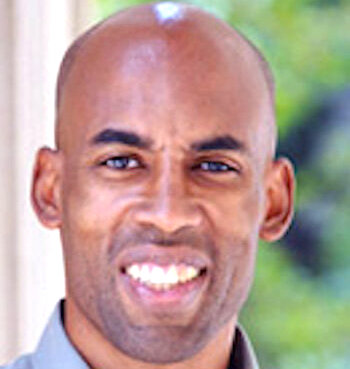 Christopher L. Brown, an African American professor of history at Columbia University in New York City, left campus in March when the university transitioned to online learning for the remainder of the semester. He went to a family home in Vermont.
Christopher L. Brown, an African American professor of history at Columbia University in New York City, left campus in March when the university transitioned to online learning for the remainder of the semester. He went to a family home in Vermont.
On Friday May 8, Professor Brown, who drives a car with New York State license plates, was in his car in Hartford, Vermont, with his 11-year-old son. According to a report from the Vermont State Police, he was flagged down by occupants of two vehicles. Professor Brown, thinking someone needed assistance, stopped and spoke with a White occupant of one of the vehicles. Dr. Brown was advised that he was not wanted in Vermont and told to leave. Professor Brown reported the bias incident to law enforcement.
A statement released by the state police said that “Vermont is and must continue to be a state where visitors feel welcome, regardless of who they are, what they look like or where they come from, even during this pandemic. Seasonal residents, the owners of second homes and guests from beyond our borders remain able to travel to Vermont and live here under current health and safety requirements. As restrictions related to COVID-19 begin to ease, Vermonters should be prepared to see more out-of-state visitors, and they deserve the same expectation of safety and security that Vermont residents have. Hate speech and threats are disturbing, unacceptable and have no place in Vermont.”
Matthew T. Birmingham, director of the Vermont State Police, added: “People in Vermont should not have to worry about crimes motivated by hate at any time, let alone when our communities should be pulling together to face an unprecedented situation that affects all of us.”
Professor Brown, who has taught at Columbia since 2007, is the author of Moral Capital: Foundations of British Abolitionism (University of North Carolina Press, 2006) and the co-editor of Arming Slaves: From Classical Times to the Modern Age (Yale Univerity Press, 2006). He is a graduate of Yale University and holds a Ph.D. from the University of Oxford.










In Vermont, of all places? Frankly, I never knew there were enough Black people in the state to cause such racism to be evoked! (But, I suppose that ONE is sufficient to bring it to the surface.)
It appears to me that Christopher just got his wake up call regarding his “Blackness”. What I found rather interesting that Christopher just casually stopped because some White people motioned for him to pull over in VERMONT. We know Christopher would have responded differently if such persons were Black asking him to pull over. So-called Black people like Christopher in academia somehow convince themselves they’re Different than “those Blacks” until they reminded by an “everyday uneducated White”. People like Christopher need to recognize that you can Never educate yourself out of your Blackness and White America will always remind who you are.
It appears to me, Michael, that with a comment like yours, you are an ignorant assumptionist. You don’t knlw Chris. I do. He’s my high school classmate, fellow black educator, and someone I’m proud to call a friend and brother. Neither of us need you or anyone else judging our “wokeness.” You have no idea what he or his family members have endured on their journey. For you to conclude that he or any other black academics arrogantly believe they’re “better than” or naively think they’re perceived by racists as “different from” blacks who don’t carry the same academic pedigree is absurd. Your uninformed screed racially profiles Chris as much as a racist police officer might. You know what’s said about people who assume, right? They make asses of themselves, as you’ve so skillfully done in this forum.
You’re obviously ignorant, arrogant and foolish. Bad combo
Thank you, Michael. I’m from Ireland and I’ve only just encountered Christopher’s work and what we can learn about the arts of deflection used by the apologists for slavery. Thanks for calling out such a slur
I had no personal experience of racial hatred as a young white man in 1967 until I drove from Boston to Montreal with my black friend. We stopped in Montpelier to eat lunch at a place frequented by students of a local military academy. Before we could enter we were pelted by pool table balls and chased to our car.
It grieves me to realize that nothing has changed. I deeply admire Professor Brown and hope that he will be undeterred.
These posts clearly show how little people know about Vermont. Montpelier, of all places, is the least intolerant and conservative. In fact, it’s more accepting and liberal than most cities on the east coast. Maybe years ago it was different (perhaps in 1967) but it’s naive to assume that that’s still the case without actually experiencing the city yourself. This is an example of how things get blown out of proportion and how opinions are formed with very limited knowledge.
Professor Brown’s eloquently careful examination of history is a pathway to overcome alethophobia.